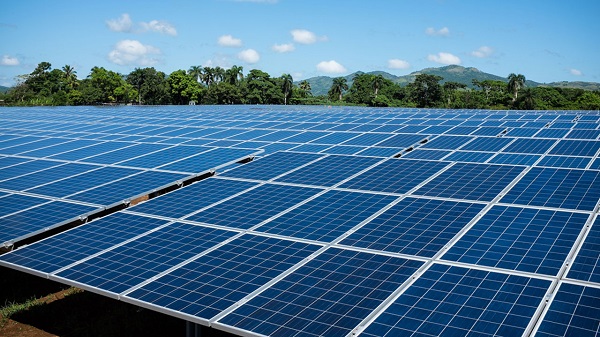News
Fed Govt, IFC launch $500m renewable energy fund

The Federal Government and the International Finance Corporation (IFC) of the World Bank have agreed to raise $500 million for renewable energy projects across the country.
The Nigeria Sovereign Investment Authority (NSIA) and IFC are committing $25 million each to kick-start the partnership through the Renewables Investment Platform for Limitless Energy (RIPLE).
The aim of the partnership is to displace diesel, focus on franchising, and integrate backward for photovoltaic (PV) manufacturing.
Diesel displacement is the process of replacing traditional diesel fuel with alternative fuels or technologies that produce lower emissions while PV manufacturing refers to the production of PV devices, which convert sunlight into electricity.
Speaking with reporters after the agreement signing in Abuja over the weekend, NSA Managing Director, Aminu Umar-Sadiq, described the collaboration between NSIA and the IFC as a clear demonstration of NSIA’s dedication to sustainable energy transition in Nigeria.
According to him, as the custodian of economic resources for current and future generations of Nigerians, tackling climate risks is integral to NSIA’s objectives.
“We recognize the many opportunities it offers for innovation, growth, and economic transformation,” Umar-Sadiq said.
He explained that in order to raise the $500 million, the initial step involves coming up with smaller projects to showcase their potential to external investors.
The NSIA boss noted that the plan involves executing infrastructure projects over three to four years, demonstrating their capabilities to attract additional capital and scale up.
He added that the primary goal of the project is to bridge Nigeria’s power deficit through sustainable, renewable energy sources.
Umar-Sadiq said the NSIA aims at not only investing but also to co-sponsor and co-develop projects, providing impactful solutions beyond just financial backing.
He said: “The strategy involves creating a portfolio of projects to showcase success and mitigate risks, attracting further capital toward the $500 million goal.
“The NSIA and the IFC are starting with a 70-megawatt project in Tokarawa, Kano State. It involves setting up a generation and distribution system to meet 70mw of unsuppressed energy demands of industrial activities, commercial enterprises, and residential customers in an area covering about 9,000 connections. They also plan to announce additional projects soon.”
Regional Manager, Africa, International Finance Corporation (IFC), Dan Croft, said the project would be a game changer in the energy space, noting that the corporation has been searching for a solution like this for almost 20 years.
He said innovation and designing solutions that fill the existing gaps are key to transforming the industry.
Croft explained that IFC’s interest in the project is centered on access, efficiency, security, and sustainability.
He said the corporation is always looking to work with credible partners who are committed to long-term development on a fully sustainable basis, with the goal of delivering the most cost-effective and clean power.
According to him, IFC values “finding partners like this, although they are rare to come by”.
He said IFC is providing early stage development capital to seed the platform, with a focus on longer-term investment.
He said the corporation is not interested in just the upfront seed, and will only proceed if there is a long-term horizon.
He pointed out that the corporation is open-ended in terms of the financing it likes to provide, but struggles to find suitable opportunities, which is why it is excited about this project.
“Reliable electricity is crucial for improving quality of life, productivity, and economic growth in Nigeria. IFC is pleased to collaborate with the NSIA to develop and implement the first phase of this innovative energy solution which will reduce greenhouse gas emissions and reliance on fossil fuel. The energy solution will also deliver reliable power supply for commercial, residential as well as industrial use,” Croft said.
